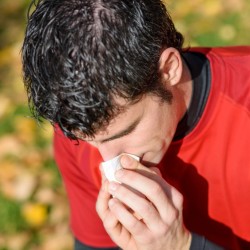The common cold, an acute infection properly known as “cold syndrome,” is the most common human illness. The majority of cases of cold syndrome are acute infections of the upper respiratory tract, and its major cause is viral infection. Conventional methods of treatment use medications, such as analgesic agents and antihistamines, but these are only effective for the alleviation of symptoms, such as sneezing and runny nose. The incidence of subjects with colds during this trial was significantly lower in the CT group than in the placebo group, although the duration of the colds was not significantly different between the groups. These results suggest that CT supplementation may be useful for the prevention of the common cold. By Shigekazu Kurihara, Takenori Hiraoka, Masahisa Akutsu, Eiji Sukegawa, Makoto Bannai, and Susumu Shibahara, published in J of Amino Acids, Vol, 2010.






